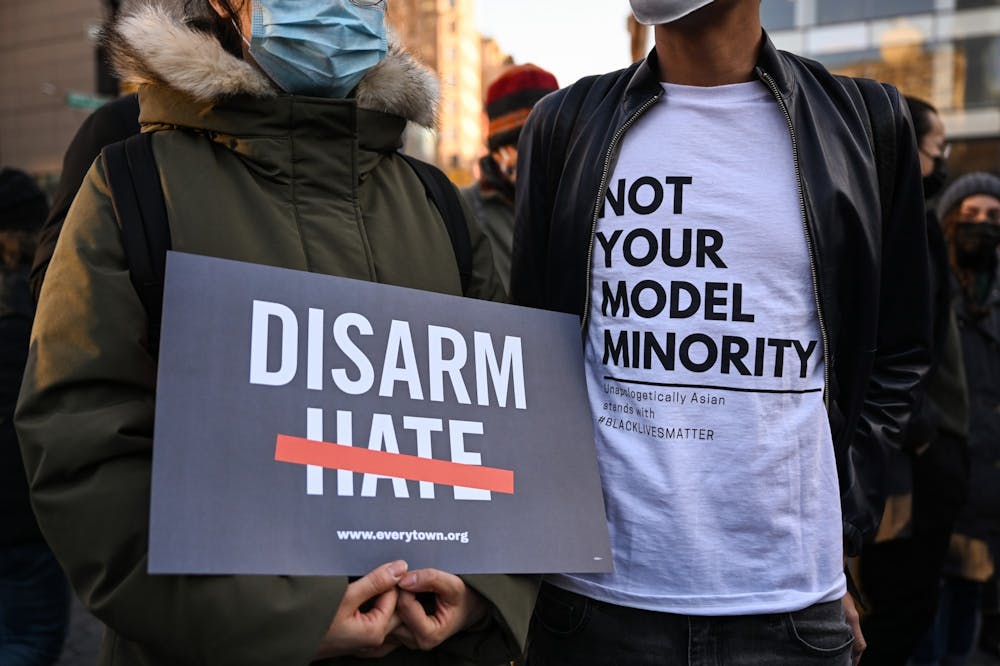
Protestors gather in Union Square on Mar. 19 at the Peace Vigil for Victims of Asian Hate.
Credit: Kylie CooperA study conducted by several Penn-affiliated researchers linked an increase in hate crimes against Asians to unemployment and economic instability.
The study found that the cause of a recent wave of hate crimes against Asians during the COVID-19 pandemic was most significant in areas with high unemployment, Penn Today reported. Political science professor Guy Grossman, Penn Development Research Initiative postdoctoral fellow Stephanie Zonszein, and Stanford researcher Gemma Dipoppa, who earned her Ph.D. at Penn, conducted their research in Italy, one of the first nations outside of China that was seriously impacted by the pandemic.
Because the increase in hate crimes was the most significant in areas of high unemployment compared to areas of high infections and mortality, the researchers concluded that the economic impacts of the pandemic were closely linked to the observed increase in hate crimes.
The researchers also found that areas with extreme right-wing mayors had strikingly high increases in hate crimes against immigrants and those of Asian descent.
“We found being prejudiced toward immigrants wasn’t enough to observe these hateful reactions," Zonszein told Penn Today. "People needed the support of a leader who was mobilizing that prejudice."
In the United States, former President Donald Trump commonly referred to COVID-19 as the “China virus” or “kung flu.” A study published by American Journal of Public Health found that Trump's rhetoric surrounding the coronavirus helped perpetuate racist attitudes via Twitter and other social media platforms, ABC News reported.
The group used data spanning from 2007 to 2020, focusing on hateful behavior, such as whether the hate crime was a physical or verbal attack.
Grossman told Penn Today that the research demonstrates that upticks in hate crimes are not always caused by terror attacks — such as 9/11 and the 2015 Paris attacks — but that they can be the result of other situational triggers as well.
“What’s unique about this pandemic is that it also changes the structural conditions, in the sense that now there’s high unemployment and people are fearful of losing their jobs," Grossman told Penn Today. "The idea of a pandemic changes risk perception, but also changes your economic condition.”
The Daily Pennsylvanian is an independent, student-run newspaper. Please consider making a donation to support the coverage that shapes the University. Your generosity ensures a future of strong journalism at Penn.
Donate







